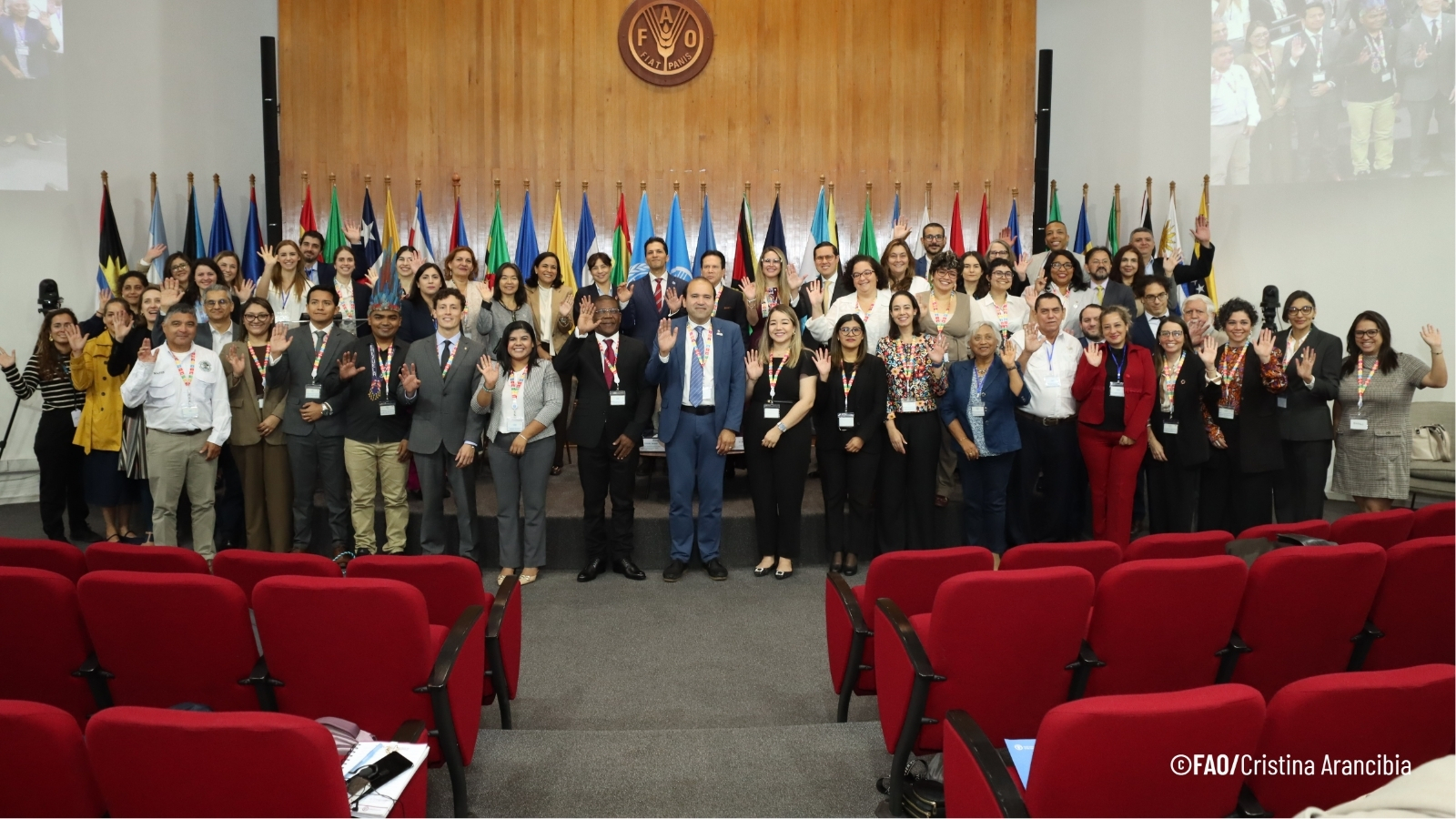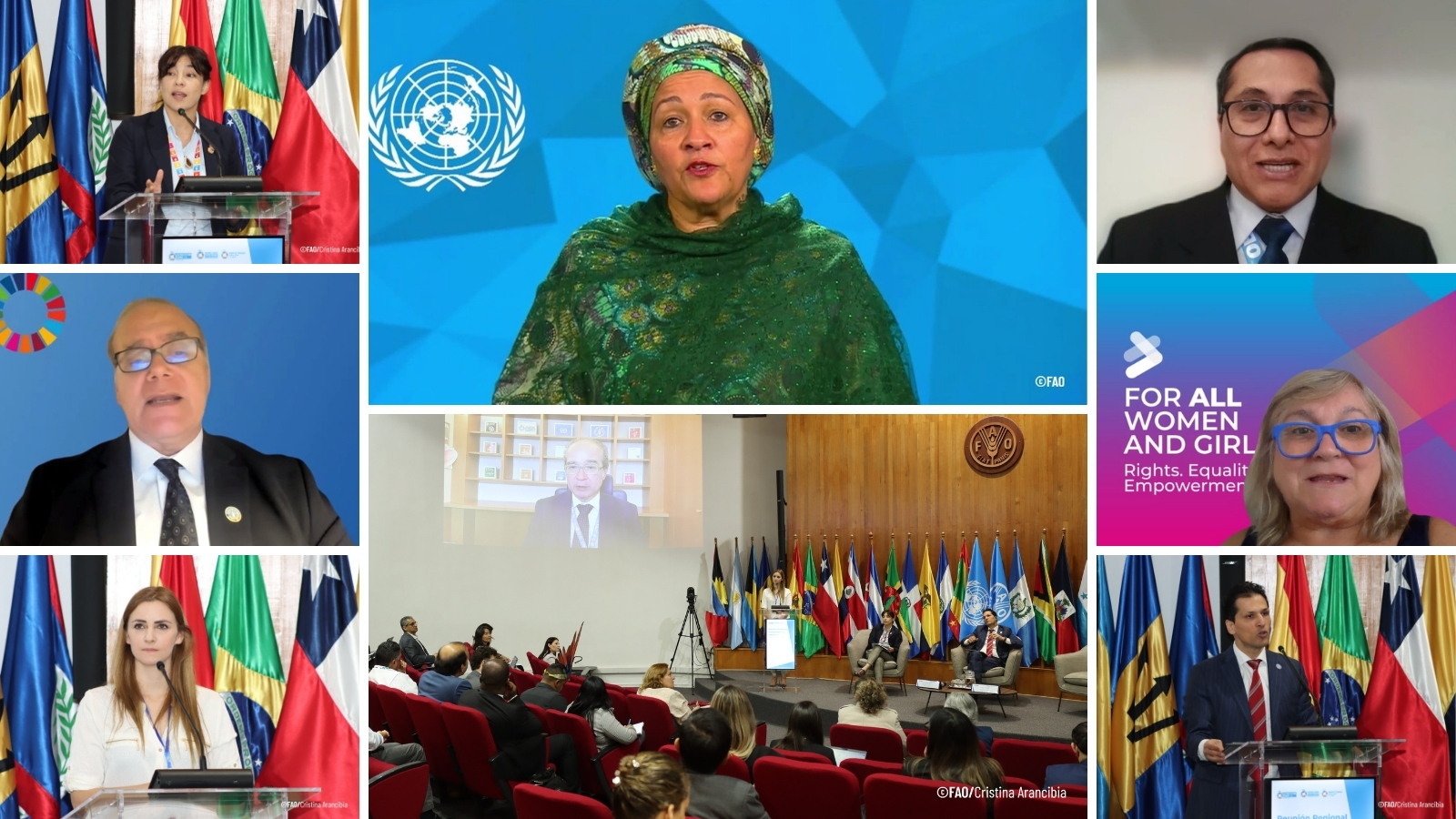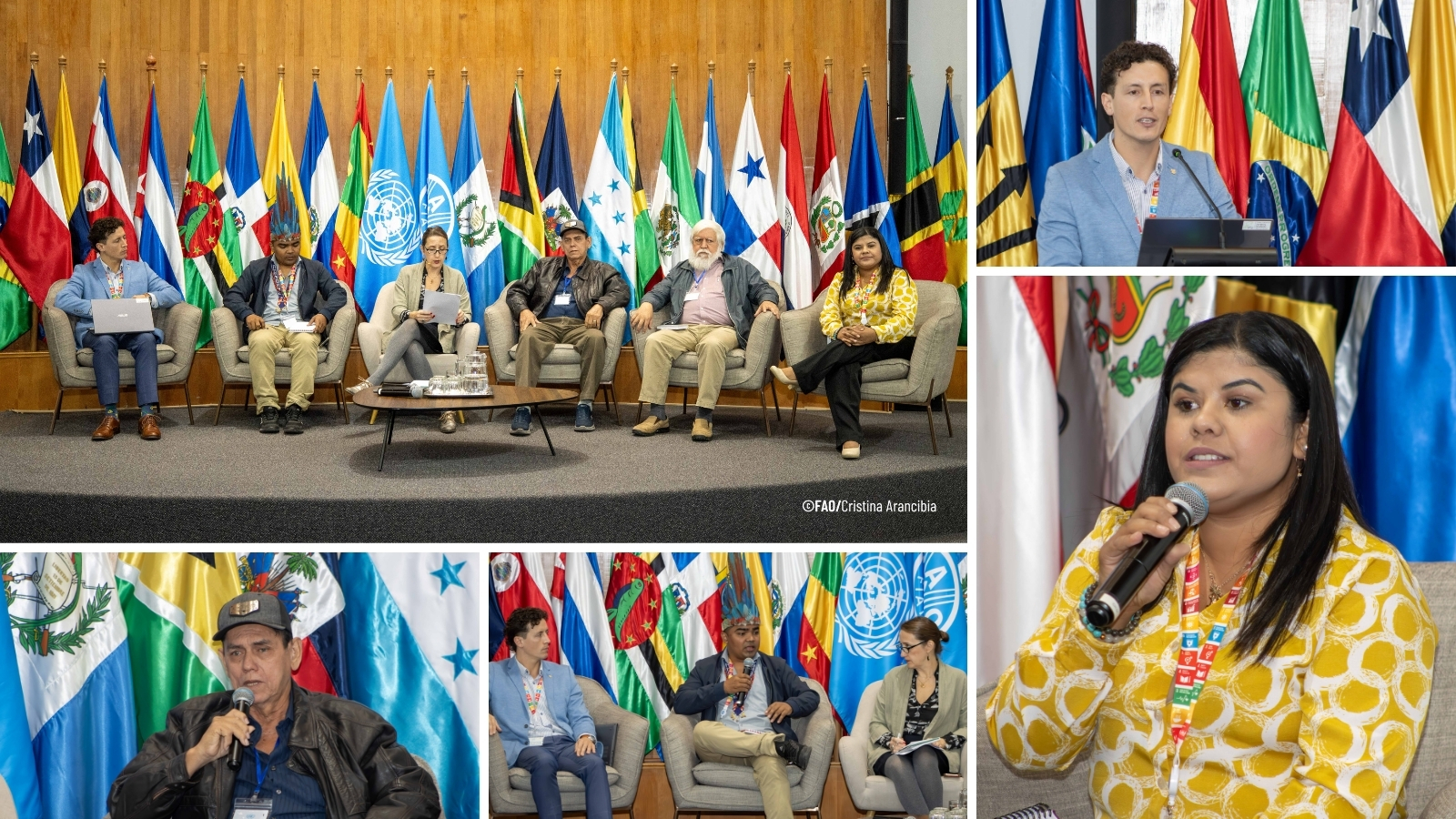Americas and the Caribbean Unite for Food Systems Transformation at UNFSS+4 Regional Meeting

©FAO/Cristina Arancibia
From 7-9 April 2025, leaders and changemakers from across Latin America and the Caribbean gathered to attend the Regional Preparatory Meeting for the 2nd UN Food Systems Summit Stocktake (UNFSS+4) in Santiago, Chile. Organized by the UN Food Systems Coordination Hub (the Hub) in collaboration with the UN Interagency Task Force for Latin America and the Caribbean, the three-day event marked a pivotal moment to assess progress, renewed commitments, and aligned priorities ahead of the global UNFSS+4 in Addis Ababa, Ethiopia this July.

The opening session featured powerful remarks from regional and global leaders. UN Deputy Secretary-General Amina J. Mohammed applauded the region's reduction of hunger, calling for stronger, inclusive engagement. Valeska Naranjo, Executive Secretary of Chile's Elige Vivir Sano system and National Convenor, reaffirmed the host country's commitment to sustainable and equitable food systems. María-Noel Vaeza, UN Women Regional Director and Chair of the UN Food Systems Task Force for Latin America and the Caribbean, stressed the need for women's leadership and gender equality to be at the heart of transformation. FAO Chief Economist Maximo Torero emphasized the urgency of balancing food production, environmental protection, and affordability. Stefanos Fotiou, Director of the Hub, opened the meeting with a call to action, encouraging countries to take bold, integrated steps to transform food systems with climate action, finance, and equity. Giovanni Escalante, PAHO (Pan American Health Organization) Representative, highlighted the centrality of health and nutrition. Khaled Eltaweel, from the Hub, underscored the region's critical role in global food security.
The preparatory meeting was held in the sidelines of the 8th forum on Sustainable Development for Latin America and the Caribbean 2025, bringing together over 45 in-person participants and more than 100 virtual attendees. Delegates included National Convenors from 21 countries, representatives from UN agencies, regional institutions, civil society, smallhold farmers, artisanal fisheries, academia, Indigenous Peoples, youth, and the private sector.
While celebrating notable progress, participants also reflected on the significant challenges that remain—from rising inequality and climate change impacts to persistent investment and accountability gaps. At the same time, they highlighted regional strengths and opportunities, such as strong multilateral cooperation, vibrant civil society engagement, and a shared commitment to inclusive and sustainable development. These provide a powerful foundation for advancing food systems transformation across the region.
Reflecting on Progress
Countries across the region reported significant efforts to mainstream food systems transformation into national policies, strategies, and investment plans. Social protection, healthy diets, intersectoral coordination, and territorial planning are key areas where actions have gained momentum. Regional collaboration and peer learning were cited as essential enablers, although more work is needed to ensure consistent implementation and impact at scale.
Placing People at the Center of Transformation
A strong regional message emerged around the need to place people at the heart of transformation, especially those who produce, distribute, and preserve food. Participants emphasized the essential contributions of small-scale farmers, artisanal fishers, Indigenous communities, women, and youth in shaping resilient and inclusive food systems. These groups are not only key actors in food production and stewardship of biodiversity, but also agents of innovation and knowledge. In particular, young women face compounded barriers yet demonstrate strong leadership in driving change at local and national levels. The meeting underscored the importance of recognizing their rights, ensuring equitable access to resources, and creating enabling environments where their voices guide policies and investments. Empowering these groups is not only a matter of justice but a prerequisite for meaningful, sustainable transformation.

Strengthening Accountability and Inclusive Governance
Participants emphasized the importance of inclusive governance frameworks that examine the voices of youth, women, Indigenous Peoples, and civil society. Calls to institutionalize national dialogue platforms, build data and monitoring systems, and establish participatory accountability mechanisms echoed throughout the sessions. The region expressed a strong desire to move from voluntary engagement toward sustained, transparent, and results-driven processes.
Converging Food Systems and Climate Action
Aligning food systems with climate and biodiversity goals was a central topic. Stakeholders underscored the need for policy coherence across sectors and food systems transformation to be recognized as a core component of national climate strategies. As COP30 approaches, the region prepares to amplify its voice and showcase integrated approaches that build resilience and reduce environmental impacts.
Elevating Science, Youth, and Knowledge Systems
Scientific institutions and youth leaders highlighted the importance of bridging the gap between research, traditional knowledge, and policymaking. Strengthening science-policy interfaces, investing in data systems, and supporting youth-driven innovation emerged as regional priorities. Stakeholders also advocated for increased investment in capacity-building and participatory research.
Unlocking Investments for Transformation
A recurring message throughout the meeting was the urgent need to scale up investment. Creating enabling environments—through regulatory clarity, policy stability, and incentives for sustainable practices—was highlighted as a prerequisite. Tools such as blended finance, climate-smart investment mechanisms, and inclusive public procurement were recognized as key to unlocking capital and scaling impact. Development partners reaffirmed their readiness to support countries through tailored financial and technical support.
Regional Contributions to UNFSS+4 Objectives
The Santiago meeting generated strong regional messages aligned with the three pillars of the UNFSS+4 process:
- Reflecting on Progress: Participants documented concrete advances, shared innovations, and identified persistent bottlenecks and inequalities.
- Partnerships and tracking commitments: The region reinforced its commitment to inclusive governance and transparency, with proposals to enhance tracking of progress and commitments.
- Unlocking investments for food systems: The meeting elevated practical financing solutions and stressed the importance of regional cooperation to remove barriers and scale up successful models.
Next Stop: Addis Ababa
The momentum from Santiago will carry forward to the global UNFSS+4 Stocktake in Addis Ababa this July. With shared goals, concrete experiences, and strengthened alliances, America and the Caribbean are prepared to contribute bold solutions and a unified regional voice.By transforming food systems with people and the planet at the center, the region is not only addressing hunger, climate change, and inequality but also leading the way toward a sustainable, inclusive future for all.
Related links:
- UNFSS+4 Regional Preparatory Meetings
- Event page for UNFSS+4 Regional Preparatory Meeting in Latin America and the Caribbean
- Photographs from the event
